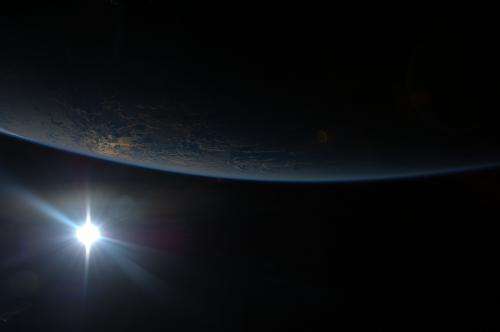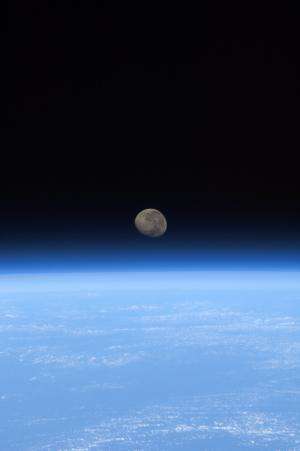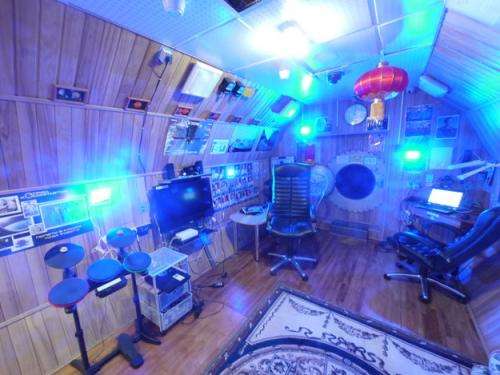An astronaut's rhythm

Anyone who has flown long distances will be familiar with the jetlag that comes with travelling across time zones. Our body clocks need time to adjust to different daylight times as high-fliers and frequent travellers know all too well. But what about astronauts, the highest fliers of all? Do they suffer from rocket-lag?
Astronauts can suffer sleeping problems in space just as on Earth. Stress, heavy workloads, anxiety, background noise, light and air quality can all upset their body clocks. Minimising sleep disturbances for astronauts is just one of the goals of the European Astronaut Centre's medical team.
"As on Earth, there are three basic ways to help settle into a regular sleeping pattern," notes Volker Damann, head of the space medicine office.
Astronauts on the International Space Station have a very structured day, working ten hours maximum followed by a sleep period of eight hours. Breakfast, lunch and dinner are at set times as well as relaxation periods, debriefings, times to communicate with family and friends, times for privacy and times for sports activities.
The schedule is based on a 24-hour Earth day synchronised to Greenwich Mean Time. Even though astronauts experience 16 sunrises and sunsets every 24 hours, their week is not dissimilar to common working life on Earth.
After a Monday–Friday working week, Saturday is spent on more work, maintenance, cleaning and private time, while on Sunday they have no duties at all, although many astronauts continue to perform voluntary science and maintenance.

The schedule is planned, controlled and coordinated, but is often disrupted through mission requirements, unforeseen events, repairs, maintenance and additional science. Arriving spacecraft often require schedule changes and the crew can be asked to go to bed earlier to wake up refreshed for a late docking.
"Due to the structured routine chemical aids to help sleeping are usually not necessary," says Volker. "If feelings of jetlag do occur we may recommend melatonin to an astronaut."
Melatonin is produced by our body to regulate our biorhythms. It helps to synchronise our internal clock to a change in wake-up or bedtime that occurs with transcontinental flights and flights into orbit.
The space medical community is also experimenting with light of different colours. Morning and evening sunlight on Earth has more red in it, while bright sunlight during the day has more blue wavelengths, cueing our body for the time ahead.
Blue lighting on the Space Station could influence the body to be more alert, whereas red lighting might induce sleep.

Medication is an option if all else fails, but side effects include drowsiness and difficulties on waking up. Hangovers and even hallucinations are less than ideal when operating scientific equipment in outer space.
The Astronaut Centre tests medications for side-effects because they can differ between astronauts. Typical sleep medication induces sleep but is quickly filtered out by the body. "We do not want astronauts sleeping through fire alarms because they have taken too much," says Volker.
Space pharmacology is still in its infancy. Nobody really knows how drugs work in weightlessness and whether a typical dose on Earth will be too little or too much in space. European researchers are investigating this area so astronauts can sleep soundly knowing that the people on ground are looking out for them.
Provided by European Space Agency


















